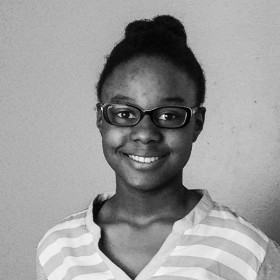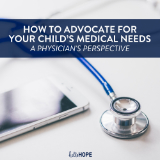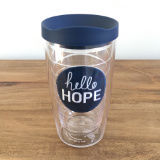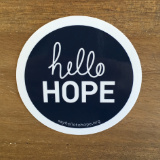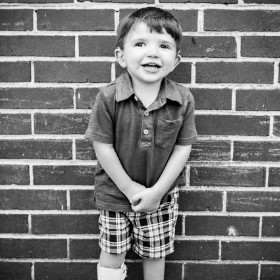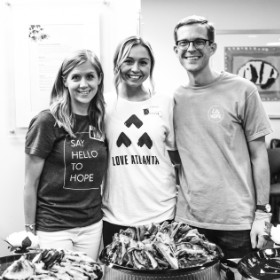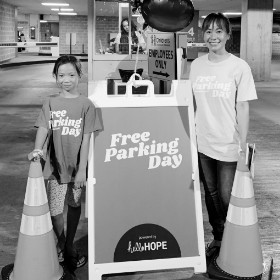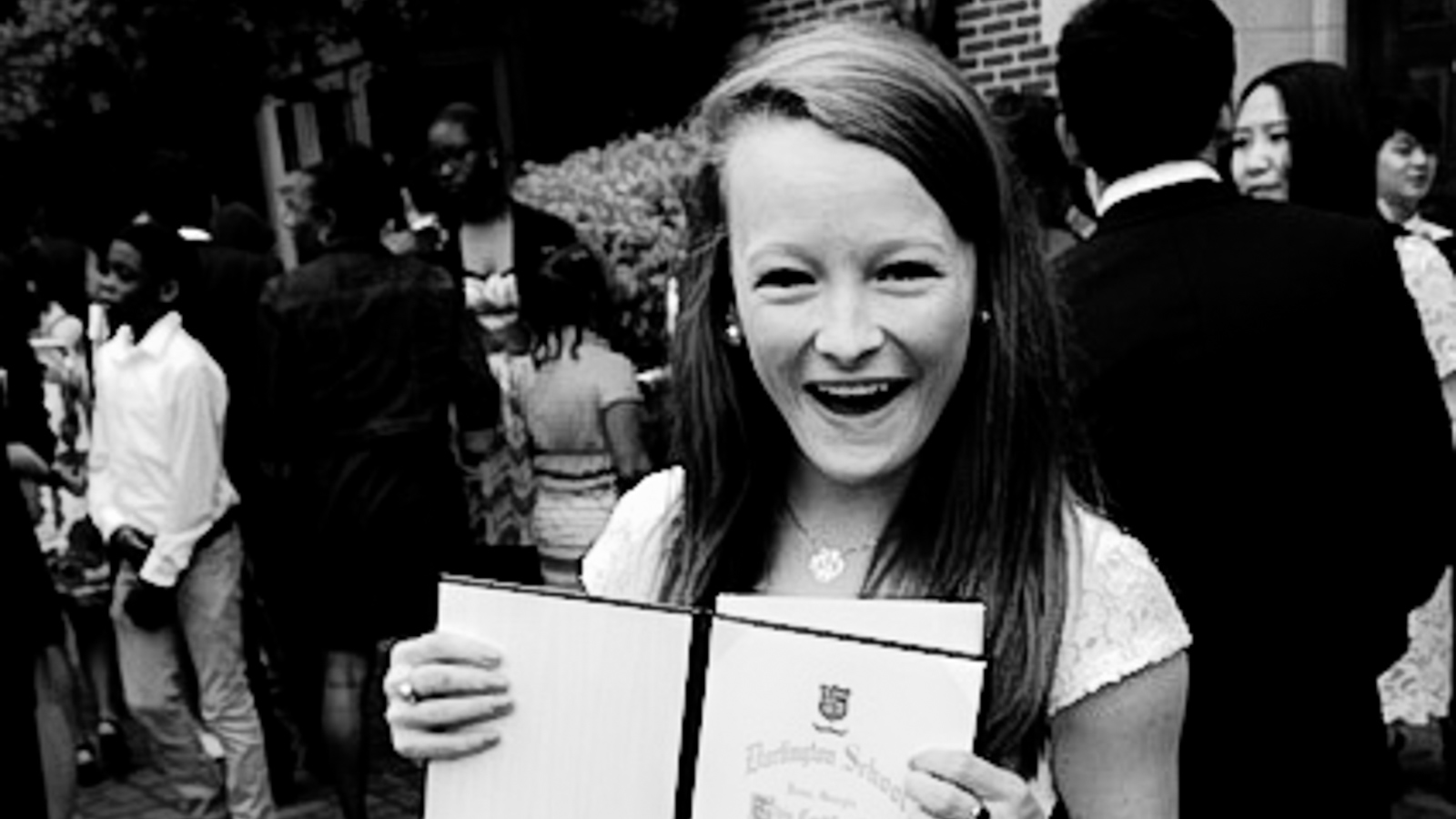Chronic Myelogenous Leukemia: Madeline’s Story of Hope [Part 2]
Last week we shared the story of Madeline Gaffney’s diagnosis with Chronic Myelogenous Leukemia through her parents’ eyes. This week, we have the privilege of sharing Madeline’s perspective with you.
Madeline Gaffney was just days away from her fourteenth birthday when her pediatrician detected cancer cells in her blood work. She was immediately admitted to Children’s Healthcare of Atlanta for emergency treatment.
When Madeline arrived at the hospital, she was not yet aware of her diagnosis. “I didn’t have much of a concept of what could be wrong with me, and I also don’t think I thought about kids having cancer, so that wasn’t even remotely in my mind.” When her doctor told her that she had Chronic Myelogenous Leukemia, or CML, Madeline says that she felt out of touch with the reality of the situation. “I didn’t cry immediately, I just felt stunned,” she remembers.
Over the nine days she spent in the hospital she was sedated to help her endure intensely painful twice-daily blood transfusions and chemotherapy. This kept her groggy and contributed to her being unaware of how much danger she was facing, which she now realizes was a blessing. “I think that helped me stay optimistic and keep fighting.”
Madeline credits her parents’ positive attitudes with keeping her afloat and helping her to have courage throughout exhausting treatments. “Even though it’s a physical [illness] and your body needs to heal, I think it’s also a mental game, and that’s why positivity helped … it takes some mental toughness to fight something like that.”
Facing the Diagnosis of Chronic Myelogenous Leukemia
Later, during more vulnerable moments, Madeline began to realize how her parents had put on a brave face for her, outwardly appearing determined and optimistic, while inwardly wrestling with their own fears and grief about their daughter’s illness. She remembers her mother and father alternating nights sleeping on a couch in her room to keep constant watch over her.
One instance in particular sticks out to Madeline as the moment when the seriousness of her disease became real to her. While in the hospital, Madeline’s parents and nurses helped her brainstorm ideas for her Make a Wish Foundation wish. One day, after returning home, Madeline was reading through some of the foundation’s literature when she discovered that the organization helps children with terminal and life-threatening illnesses. She went to her mother, Ellen, to tell her there had been a mistake –– she didn’t qualify for the program.
Ellen explained to Madeline that her leukemia was, in fact, life-threatening, and took her daughter through the diagnosis. Though they had no idea how sick she was when she arrived at the hospital, had she not received medical intervention at that time, she would have died. Overwhelmed by this news, Madeline retreated to her room. “I just lost it,” she remembers. “I realized that it was not just me living my life, but that God had me, literally, in the palm of his hand, and had timed everything perfectly for me so that I could live and have this second chance. I was two weeks away from dying, and it all turned around.”
Defining Hope After Leukemia
When asked how Madeline defines hope, she points to her faith, saying that the precise timing of her diagnosis and treatment gave her a concrete awareness of God’s presence in her life. The outcome of this faith is a deep sense of knowing that in any circumstance she can still have joy, because of her hope. “It’s an inner sense of encouragement that things can get better, that they will be okay, regardless of the situation you’re in,” she explains.
Jeremiah 29:11 has become an important verse to her family, perfectly reflecting their experience with Madeline’s disease:
“For I know the plans I have for you,” declares the Lord, “plans to prosper you and not to harm you, plans to give you hope and a future.”
“One time my mom asked me, ‘If there’s one thing in your life you could change, what would it be?’ And I think I said I’d rather be two inches taller, and she said, ‘You wouldn’t wish that you didn’t have cancer?’ and I said, ‘Absolutely not … it was a defining moment in my life, and also a turning point in my faith.’”
Giving Back and Looking Ahead
Madeline says that feeling like she’s been given a second chance has helped her to be more analytical and self-reflective, but has also given her a positive, glass-half-full outlook. “It forced me to grow up in a good way, and this gave me more perspective on life … life is short, not every day is promised.”
Having CML led Madeline and her family to work for better outcomes for other childhood cancer patients, because they’ve been so personally affected. “I would never take back the time I was sick, because it grew me so much,” she says. ”It continues to grow me, because it’s not something that’s just done now. It’s part of my life, but for the better. Now [my family] has a way to give back and do something greater than ourselves.”
In addition to learning how to give back, Madeline says that her experience also helped her to learn the depth of her own capabilities. Having overcome cancer, she now approaches life with a “what else can I do?” attitude.
Madeline’s hope makes her an inspiring young woman and is leading her on to big adventures. She’s spending her summer studying in East Asia and will graduate from Georgia Institute of Technology’s industrial engineering program in December.
You may also be interested reading about the Gaffney’s experience facing the diagnosis of Chronic Myelogenous Leukemia from a parent's perspective.
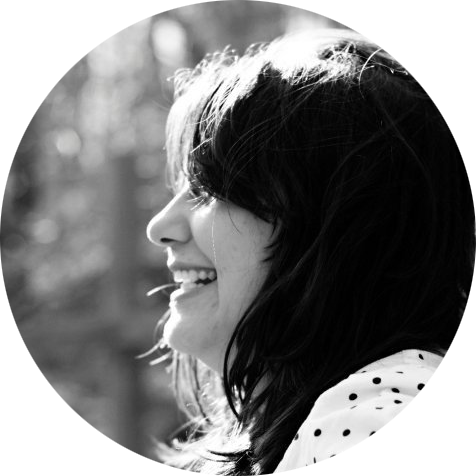
About the Author
Catie Cummings-Morris is a freelance author specializing in non-profit work and food writing living in Chattanooga, Tennessee, with her husband, daughter, and a vegetable garden.
Loading...



